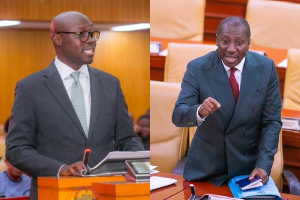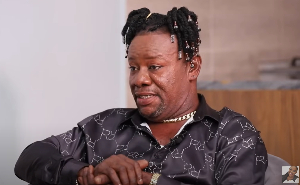Accra, Oct.09, GNA- The government will soon pursue an 85 million dollar two pronged strategy over five years to reverse Ghana's perennial trade deficits.
Ms. Hannah Tetteh, Minister of Trade and Industry, in an interview with the Ghana News Agency in Accra, said Cabinet has okayed the Industrial Policy and the Private Sector Development Programme phase two, to reform the trade sector from 2011 as part of a grand design to make the national economy competitive enough to rake in trade surpluses soon.
Figures released by the Bank of Ghana (BoG) indicates that Ghana's trade deficit for the first half of the year has widened to $1.2bn compared to $1bn for the same period in 2009.
Total merchandise imports in the first half of 2010 amounted to $5.14bn, 28.1% higher than the level recorded in the first quarter of 2009 making such a task very arduous.
But Ms Tetteh said: "We need to be pragmatic and not emotional about global trade because what we export is less valued than what we import. We can not rake in surplus if we continue to tread this path. We must accept the challenges and overcome them."
She said the Industry Policy which is the umbrella strategy for improving on the over all industrial base of the country would cost 50 million dollars while the Private Sector Development Programme (PSDP) phase two, which primarily seeks to enhance the capacity of the private sector will cost about 35 million dollars.
According to the Trade and Industry Minister, both strategies compliment each other since the overall goal is to make the local Ghanaian investor competitive on the international scene. The private sector will to be encouraged to add value to the commodities they export through various interventions.
"We want to woo world class industries to team up with our local investors to turn some of the raw produce into intermediate products and more importantly, aspire to the standards of international consumers." Ms. Tetteh said the process is designed to transfer technology and skills to local workers as well as expand the employment base for more Ghanaians to earn decent income.
She said a Trade Advisory Board has been formed at the Ministry of Trade and Industry to supervise the education of the private sector on how to prepare petitions and other trade matters which hitherto were either presented verbally or in an improper manner. The Minister said such paper work and education were very important if Ghanaians were to make meaningful contributions to the global trade debate.
She said the ultimate goal of the exercise is the establishment of an International Trade Commission to advise, preside and pronounce on trade disputes and other matters.
According to her, half of the country has been covered and that very soon the rest would be roped in.
Ms Tetteh said when the education, the standards and the value chain have been constructed, Ghana would then have the technical and moral ability to see through questionable trade practices and ably walk the full length of any form of litigation or procedure that may come about. Ghana like most third World countries relies on raw agricultural commodities to earn foreign exchange.
09 Oct 10
Business News of Sunday, 10 October 2010
Source: GNA
















